THE DAVIS MUSEUM AT WELLESLEY COLLEGE PRESENTS THE FIRST U.S. SOLO MUSEUM EXHIBITION of IRANIAN ARTIST PARVIZ TANAVOLI
- WELLESLEY, Massachusetts
- /
- December 11, 2014
The Davis Museum at Wellesley College presents Parviz Tanavoli, the first solo exhibition of the Iranian artist’s work to be mounted by a U.S. museum. An opening celebration, featuring a 5pm talk with the artist, will be held on Tuesday, February 10 from 5-8pm. On view through June 7, the exhibition is free and open to the general public.
Critically acclaimed and widely acknowledged as the “father of modern Iranian sculpture,” Tanavoli’s trajectory has spanned east and west as he has innovated ambitiously across media. Best known as a sculptor, his expansiveoeuvre also includes painting, printmaking, ceramics, rugs, and jewelry. As well, he is a highly regarded collector, scholar, and poet. This exhibition shares the breadth and richness of his work from the 1960s to the present.
Based in Tehran and Vancouver, Tanavoli (b.1937) was a leading influence among a generation defined by its commitment to artistic practices that are both modern and distinctly Iranian. Over decades, he has refined a complex system of symbols and motifs into a distinctive visual lexicon, fusing Persian traditions with pop sensibility. As well, his work entwines profound sensitivity to language, formal clarity, and conceptual engagement into a forcefully original artistic practice.
Tanavoli returns again and again to the Poet, the Prophet, and the Lovers, to walls and windows, locks, and birds— figures that stand on metaphorical borders, and exist aesthetically between traditions of realism and abstraction. Among his many long-standing projects, heech—initiated in February 1965, and set to mark a fiftieth anniversary with the opening of the Davis exhibition—perhaps best exemplifies Tanavoli’s work. The artist treats the calligraphic script for “heech,” the Farsi word for “nothing” or “nothingness” to multiple expressions in three dimensions and variable materials—from delicate jewelry to polished bronze and hi-gloss fiberglass sculpture. The concept of heech, as Tanavoli explains, is abstract, philosophical, and celebratory; he says, "Heech is not nothing. It has a body, a shape, but also a meaning behind it.”
Internationally recognized as one of Iran’s foremost artists, Tanavoli’s work has been presented around the world, and has recently been featured in exhibitions at the Metropolitan Museum of Art, the British Museum, Asia Society and the Grey Art Gallery at New York University. His work is held in numerous public and private collections, including: Tate Modern and the British Museum, London; the Metropolitan Museum of Art and the Museum of Modern Art, New York; the Minneapolis Institute of Arts and the Walker Art Center, Minneapolis; Museum Moderner Kunst, Vienna; the National Museum of Scotland, Edinburgh; the Museum of Contemporary Art, Tehran; Mathaf Museum, Qatar; Royal Society of Fine Arts, Amman; and the Guggenheim Museum, Abu Dhabi.
Parviz Tanavoli is curated by Lisa Fischman, Ruth Gordon Shapiro '37 Director of the Davis, with Dr. Shiva Balaghi,Brown University.
The exhibition, and a fully-illustrated companion publication, are made possible with generous support from The Maryam and Edward Eisler/Goldman Sachs Gives Fund on Art and Visual Culture in the Near, Middle, and Far East. Established in 2014 by Maryam Homayoun Eisler '89 and Edward Eisler, the Eisler Fund creates a unique cross-disciplinary platform for research, exhibitions, and scholarship on art and visual culture in the Near, Middle, and Far East and supports ambitious programming that draws heavily on the collections-based, curatorial, scholarly, and pedagogical resources of the Davis Museum and Wellesley College Art Department. Parviz Tanavoli marks the first venture under its auspices.
The Davis Museum at Wellesley College presents Parviz Tanavoli, the first solo exhibition of the Iranian artist’s work to be mounted by a U.S. museum. An opening celebration, featuring a 5pm talk with the artist, will be held on Tuesday, February 10 from 5-8pm. On view through June 7, the exhibition is free and open to the general public.

100x100_n.jpg)
100x100_c.jpg)
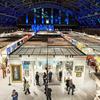

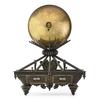

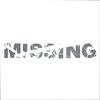

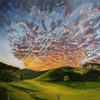
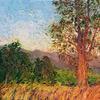
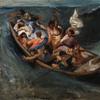
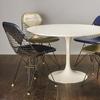


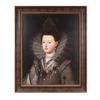
100x100_c.jpg)